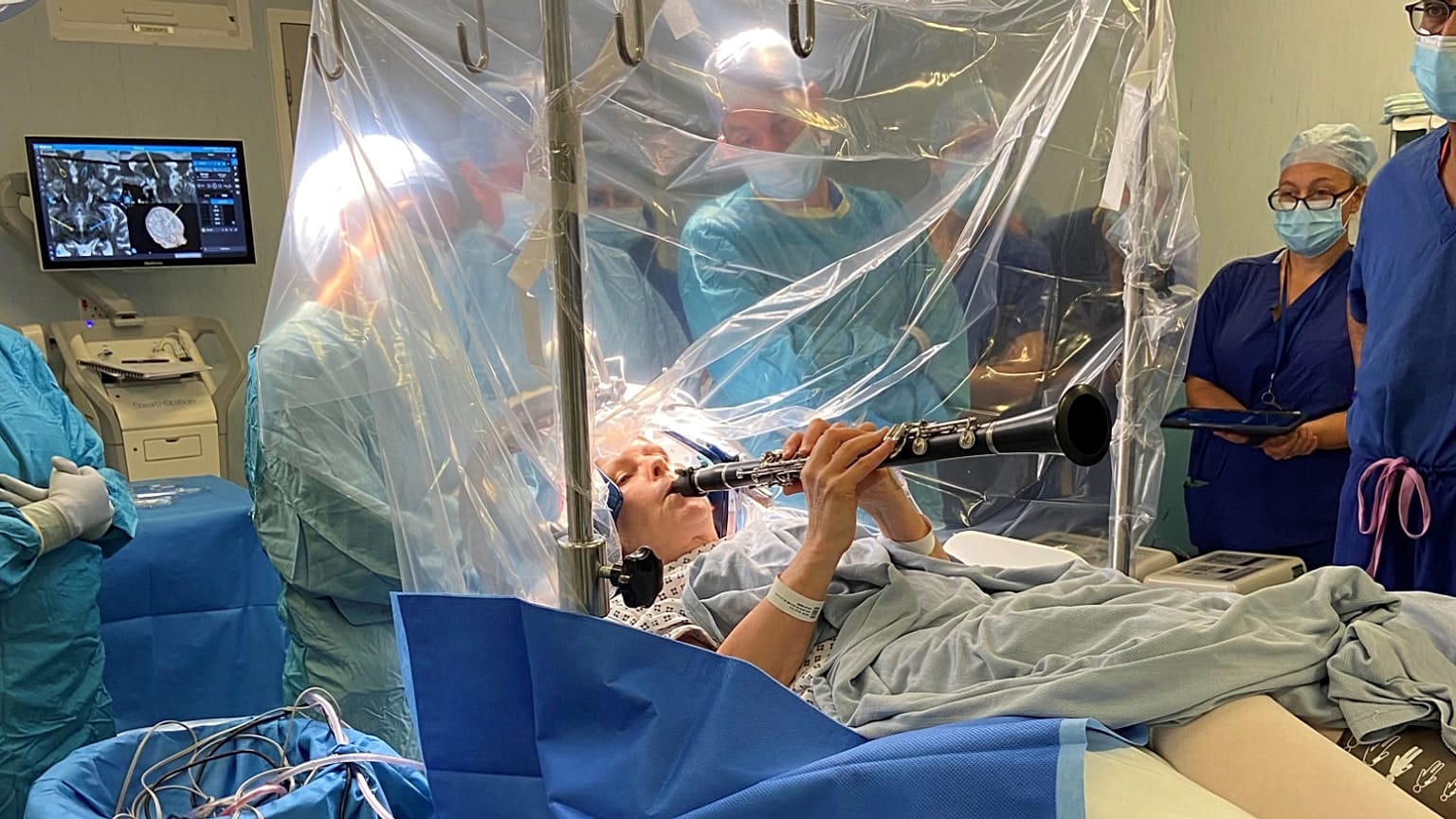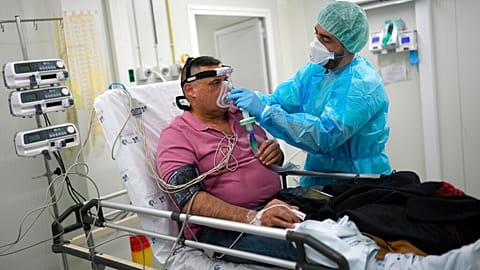Doctors said the results were 'instant' on the operating table.
A brain-stimulating procedure has improved symptoms of Parkinson’s disease for a 65-year-old woman in England – with the proof immediately clear when she began playing the clarinet during surgery.
Denise Bacon, a retired speech and language therapist, was diagnosed with Parkinson’s in 2014. The brain disorder causes tremour, slowness, and rigidity and worsens over time as the brain becomes increasingly damaged.
For Bacon, Parkinson’s caused slowness of movement and muscle stiffness that made it more difficult to walk, swim, dance, and play the clarinet.
Her symptoms made her a candidate for deep brain stimulation (DBS), a surgical procedure where stimulating electrodes are placed into targeted areas of the brain that control movement.
The approach has long been used for patients with treatment-resistant forms of movement disorders such as Parkinson’s, which has no cure. While DBS does not stop the disease from progressing, it can help relieve symptoms.
During the four-hour operation, Keyoumars Ashkan, a neurosurgery professor at King’s College London, performed DBS while Bacon stayed awake, her scalp and skull numbed by local anaesthetic.
Surgeons made holes in Bacon’s skull and implanted the electrodes, which were connected to a pacemaker-like pulse generator that delivered electrical impulses to Bacon’s brain, helping to reduce her symptoms.
The results were “instant … once stimulation was delivered to the brain,” Ashkan said in a statement.
Bacon said she was “delighted”.
“I remember my right hand being able to move with much more ease once the stimulation was applied, and this in turn improved my ability to play the clarinet,” she said.
Bacon’s pulse generator delivers a continuous electrical current to her brain and can automatically adjust the stimulation. Its battery is implanted in her chest and could last up to 20 years before it needs to be replaced, according to King’s College Hospital, where she underwent the operation.
Now, Bacon is looking forward to resuming the hobbies she had been forced to scale back due to her symptoms.
“I’m already experiencing improvements in my ability to walk, and I’m keen to get back in the swimming pool, and on the dance floor to see if my abilities have improved there,” she said.


















